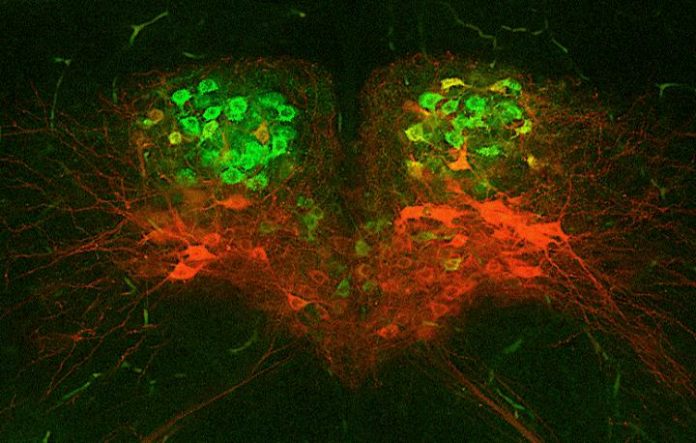Misfiring brain cells that control key parts of the mouth and tongue may be creating swallowing difficulties in children with neurodevelopmental disorders, according to neuroscientists with Virginia Tech and George Washington University.
In research using a mouse model of a genetic childhood disorder known as DiGeorge syndrome, scientists found brain cells called motor neurons that directly control the tongue muscles were firing spontaneously, out of sync with the mechanisms that should control their activity.
Finding ways to calm the motor neurons responsible for moving the tongue could lead to improved function in very young children who have difficulty swallowing, eating, or making sounds, but the scientists said more research is needed before developing therapies.
“We are continuing to make the case that activity of the motor neurons that command the movement of key parts of the mouth, tongue, and pharynx are disrupted by the same mechanisms causing genetic neurodevelopmental disorders,” said Anthony-Samuel LaMantia, senior co-author of the study, a developmental neurobiologist, and a professor at the Fralin Biomedical Research Institute at VTC. “Our goal is to learn about the causes of these symptoms to help children as early in life as possible.”
The study was published online in advance in eNeuro, an open-access journal of the Society for Neuroscience.
Problems ingesting, chewing, or swallowing food occur in up to 80 percent of children with developmental disorders and can lead to food aspiration, choking, or life-threatening respiratory infections.
Suckling, feeding, and swallowing difficulties — known as pediatric dysphagia — are among the most serious and frequent complications in infants. They are common in DiGeorge syndrome, which is a genetic disease caused when a small part of chromosome 22 is missing. The syndrome carries a high risk for autism spectrum disorder and schizophrenia, as well as heart, face, and limb malformations.
In the study, associate research professor Xin Wang and co-senior author David Mendelowitz, vice chair and professor of pharmacology and physiology, both with the George Washington University School of Medicine and Health Sciences, traced the motor neurons in mouse models DiGeorge syndrome from their target muscles, labeled each class of motor neuron, and recorded their electrical properties.
The motor neurons responsible for the forward and backward movement of the tongue in the DiGeorge syndrome models spontaneously fired compared with motor neurons of normal mice, and the excitatory impulses were not balanced by inhibitory responses.
As a result, the increased excitability of motor neurons affected compression and movement of the tongue muscles, which would threaten both food intake efficiency and airway safety in infants and toddlers.




